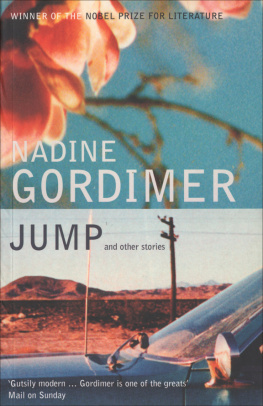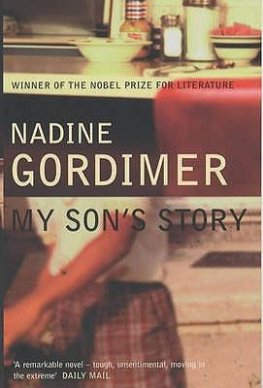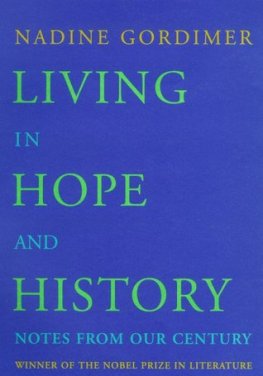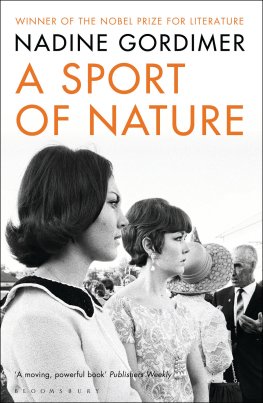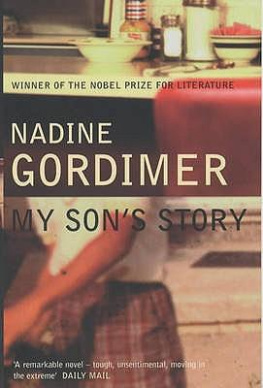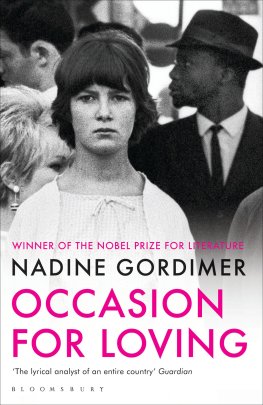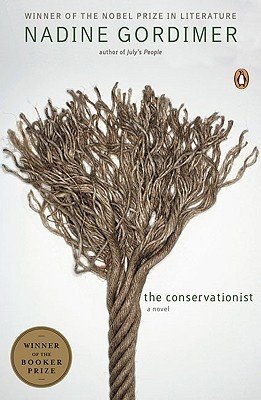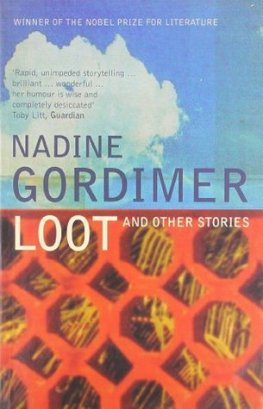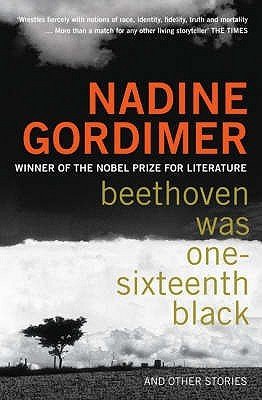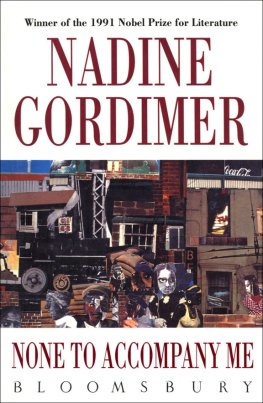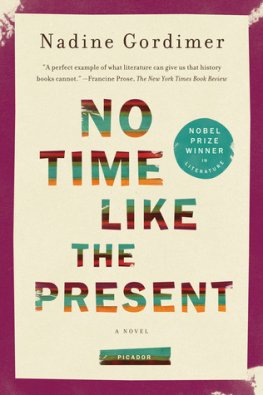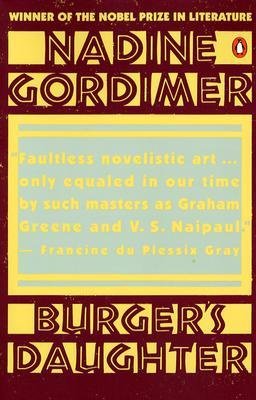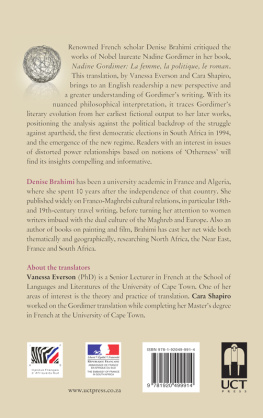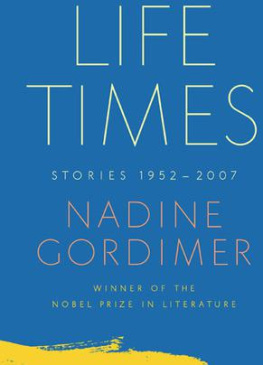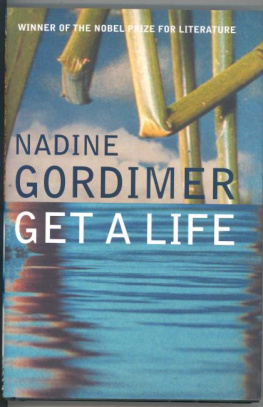Nadine Gordimer - Jump and Other Stories
Here you can read online Nadine Gordimer - Jump and Other Stories full text of the book (entire story) in english for free. Download pdf and epub, get meaning, cover and reviews about this ebook. year: 2012, publisher: Picador, genre: Detective and thriller. Description of the work, (preface) as well as reviews are available. Best literature library LitArk.com created for fans of good reading and offers a wide selection of genres:
Romance novel
Science fiction
Adventure
Detective
Science
History
Home and family
Prose
Art
Politics
Computer
Non-fiction
Religion
Business
Children
Humor
Choose a favorite category and find really read worthwhile books. Enjoy immersion in the world of imagination, feel the emotions of the characters or learn something new for yourself, make an fascinating discovery.
- Book:Jump and Other Stories
- Author:
- Publisher:Picador
- Genre:
- Year:2012
- Rating:5 / 5
- Favourites:Add to favourites
- Your mark:
- 100
- 1
- 2
- 3
- 4
- 5
Jump and Other Stories: summary, description and annotation
We offer to read an annotation, description, summary or preface (depends on what the author of the book "Jump and Other Stories" wrote himself). If you haven't found the necessary information about the book — write in the comments, we will try to find it.
Jump and Other Stories — read online for free the complete book (whole text) full work
Below is the text of the book, divided by pages. System saving the place of the last page read, allows you to conveniently read the book "Jump and Other Stories" online for free, without having to search again every time where you left off. Put a bookmark, and you can go to the page where you finished reading at any time.
Font size:
Interval:
Bookmark:

AND OTHER STORIES NADINE GORDIMER
For Pascale and Paule Taramasco
and Katherine Cassirer
Contents
He is aware of himself in the room, behind the apartment door, at the end of a corridor, within the spaces of this destination that has the name HOTEL LEBUVU in gilt mosaic where he was brought in. The vast lobby where a plastic-upholstered sofa and matching easy chairs are stranded, the waiting elevator in its shaft that goes up floor after floor past empty halls, gleaming signsCONFERENCE CENTRE, TROPICANA BUFFET, THE MERMAID BARhe is aware of being finally reached within all this as in a film a series of dissolves passes the camera through walls to find a single figure, the hero, the criminal. Himself.
The curtains are open upon the dark, at night. When he gets up in the morning he closes them. By now they are on fire with the sun. The day pressing to enter. But his back is turned; he is an echo in the chamber of what was once the hotel.
The chair faces the wide-screen television set they must have installed when they decided where to put him. There is nothing to match its expensive finishthe small deal table and four chairs with hard red plastic-covered seats, the hairy two-division sofa, the Formica-topped stool, the burning curtains whose circles and blotches of pattern dazzle like the flicker of flames: these would be standard for a clientele of transients who spend a night, spill beer, and put out cigarettes under a heel. The silvery convex of the TV screen reflects a dim, ballooned vision of a face, pale and full. He forgets, and passes a hand over cheek and chin, but there is no beard thereits real that he shaved it off. And they gave him money to fit himself out with the clothes he wears now. The beard (it was dark and vigorous, unlike the fine hair of his head) and the camouflage fatigues tucked into boots that struck authoritatively with each step, the leather-bound beret; took them all off, divested himself of them. There! He must be believed, he was believed. The face pale and sloping away into the pale flesh of the chin: his hidden self produced for them. Its there on the dead screen when he looks up.
They supplied a cassette player of good quality as well as the wide-screen television set. He is playing, so loudly it fills the room, presses counter to the day pressing against the curtains, the music track from a film about an American soldier who becomes brutalized by the atrocities he is forced to commit in Vietnam. He saw the film long ago, doesnt remember it well, and does not visualize its images. He is not listening: the swell and clash, the tympani of conflict, the brass of glory, the chords of thrilling resolve, the maudlin strings of regret, the pauses of disgustthey come from inside him. They flow from him and he sits on and does not meet the image smeared on the screen. Now and then he sees his hand. It never matched the beard, the fatigues, the beret, the orders it signed. It is a slim, white, hairless hand, almost transparent over fragile bones, as the skeleton of a gecko can be seen within its ghostly skin. The knuckles are delicately pinkclean, clean hand, scrubbed and scrubbedbut along the V between first and second fingers there is the shit-coloured stain of nicotine where the cigarette burns down. They were prepared to spend foreign currency on him. They still supply from somewhere the imported brand he prefers; packets are stacked up amply in their cellophane, within reach. And he can dial room service as indicated on the telephone that stands on the floor, and, after a long wait, someone will come and bring cold beer. He was offered whisky, anything he liked, at the beginning, and he ordered it although he had never been one to drink spirits, had made the choice, in his profession, of commanding the respect accorded the superiorly disciplined personality rather than the kind admiringly given to the hard-living swaggerer. The whisky has stopped coming; when he orders a bottle nothing is said but it is not delivered.
As if it mattered.
Covered by the volume of the music, there is the silence. Nothing said about the house: the deal included a house, he was given to understand it would be one of the fine ones left behind and expropriated by the State in the name of the people, when the colonials fled. A house with a garden and watchman for privacy, security (in his circumstances), one of the houses he used to ride past when he was the schoolboy son of a civil servant living here in a less affluent white quarter. A house and a car. Eventually some sort of decent position. Rehabilitated. He had thought of information, public relations (with his international experience); it was too soon to say, but they didnt say no.
Everything he wanted: that was to be his reward. The television crews camenot merely the tin-pot African ones but the BBC, CBS, Antenne 2, Zweites Deutsches Fernsehenand the foreign correspondents flew in with their tape recorders. He was produced at press conferences in the company of the Commander of the Armed Forces, the Minister of Defence, and their aides elegant as the overthrown colonial ones had been. A flower arrangement among the water carafes. Him displayed in his provided clothes, his thighs that had been imposing in fatigues too fleshy when crossed in slightly shiny tropical trousers, his chin white, soft and naked where the beard was gone, his hair barbered neat and flat with the dun fringe above the forehead, clippers run up the napeon his big hunched body he saw in the newspaper photographs the head of a little boy with round bewildered eyes under brows drawn together and raised. He told his story. For the first few months he told his story again and again, in performance. Everyone has heard it, now. On the table with the four chairs drawn up a cold fried egg waits on a plate covered by another plate. A jug of hot water has grown tepid beside a tin of instant coffee. Someone has brought these things and gone away. Everyone has gone away. The soaring, billowing music in the room is the accompaniment the performance never had. When the tape has ended he depresses the rewind button to play it again.
They never mention the house or the car and he doesnt know how to bring up the subjectthey hardly ever come to see him any more, but maybe thats natural because the debriefing is over, theyre satisfied. Theres nothing more to tell the television crews and the press. Theres nothing more he can think ofthink back! think back!to find to say. Theyve heard about his childhood in this capital, this country to which he has been returned. That he was an ordinary colonial child of parents whod come out from Europe to find a better life where it was warm and there were opportunities. That it was warm and there was the sea and tropical fruit, blacks to dig and haul, but the opportunity was nothing grander than the assured tenure of a white man in the lower ranks of the civil service. His parents were not interested in politics, never. They were not interested in the blacks. They didnt think the blacks would ever affect their lives and his. When the colonial war began it was away in the North; troops came from the mother country to deal with it. The boy would perhaps become an accountant, certainly something one rung above his father, because each generation must better itself, as they had done by emigrating. He grew up taking for granted the activities and outlets for adventurous play that had no place in the reality of the blacks lives, the blacks war: as an adolescent he bonded with his peers through joining the parachute club, and he jumpedthe rite of passage into manhood.
In the capital, the revolution was achieved overnight by a relinquishment of power by Europe, exacted by the indigenous people through years of war in the rural areas. A few statues toppled in the capitals square and some shops were looted in revenge for exploitation. His parents judged their security by the uninterrupted continuance, at first, of the things that mattered to them: the garbage continued to be collected twice a week and there was fish in the market. Their modest lives would surely not be touched by black rule. He was apprenticed as draughtsman to an architect by then (more prestigious than accountancy) and his weekend hobby, in addition to jumping from the sky, was photography. He even made a bit of pocket money by selling amusing shots of animals and birds to a local paper. Then came the event thatall at once, reeled up as the tape is filling its left cylinder on rewindthe experience that explained everything he had ever done since, everything that he was to confess to, everything he was to inculpate himself for and judge himself on in his performance for the journalists under the monitoring approval of the Commander of the Armed Forces and the Minister of Defence, during the probing of debriefing, the Q and A interviews; and to himself, in fiery dimness behind the curtains embers, facing the fish-eye of the TV screen, surrounded by the music, alone. He took a photograph of a sea-bird alighting on some sort of tower structure. Soldiers lumbered with sawn-off machine guns seized him, smashed his camera and took him to the police. He was detained for five weeks in a dirty cell the colonial regime had used for blacks. His parents were told he was an imperialist spytheir innocent boy only two years out of school! Of course, this was all in the confusion of the first days of freedom (he would explain to his audience), it was to be expected. And who was that boy to think he could photograph anything he liked, a military installation of interest to the new States enemies? That white boy.
Next pageFont size:
Interval:
Bookmark:
Similar books «Jump and Other Stories»
Look at similar books to Jump and Other Stories. We have selected literature similar in name and meaning in the hope of providing readers with more options to find new, interesting, not yet read works.
Discussion, reviews of the book Jump and Other Stories and just readers' own opinions. Leave your comments, write what you think about the work, its meaning or the main characters. Specify what exactly you liked and what you didn't like, and why you think so.

